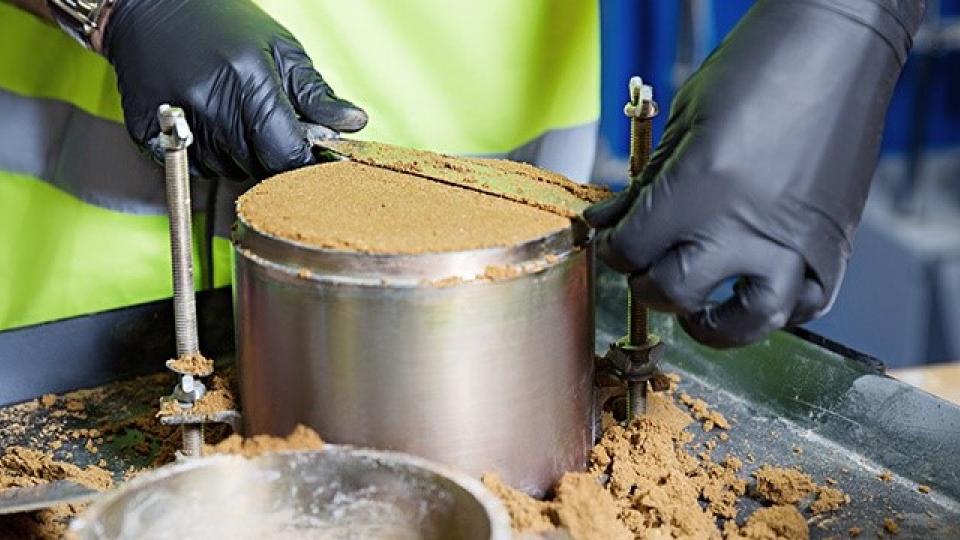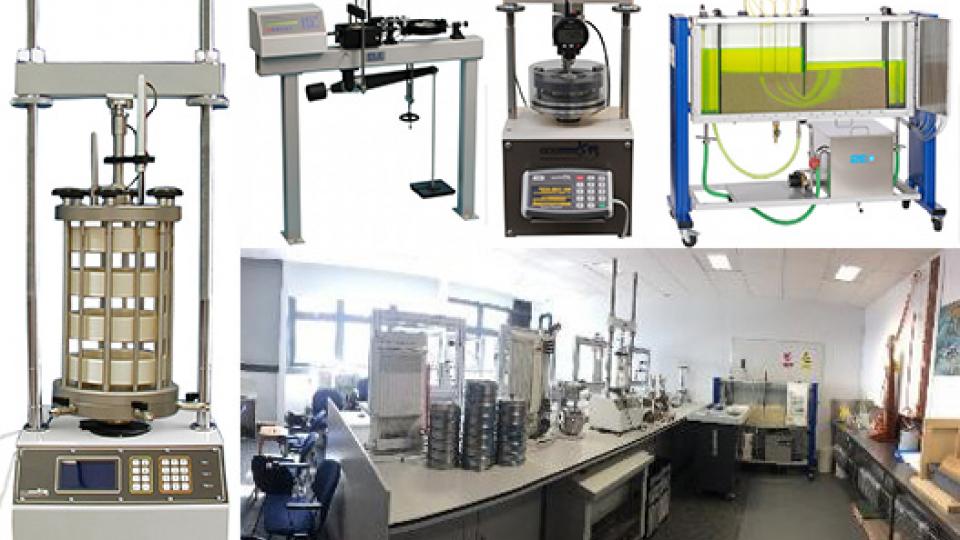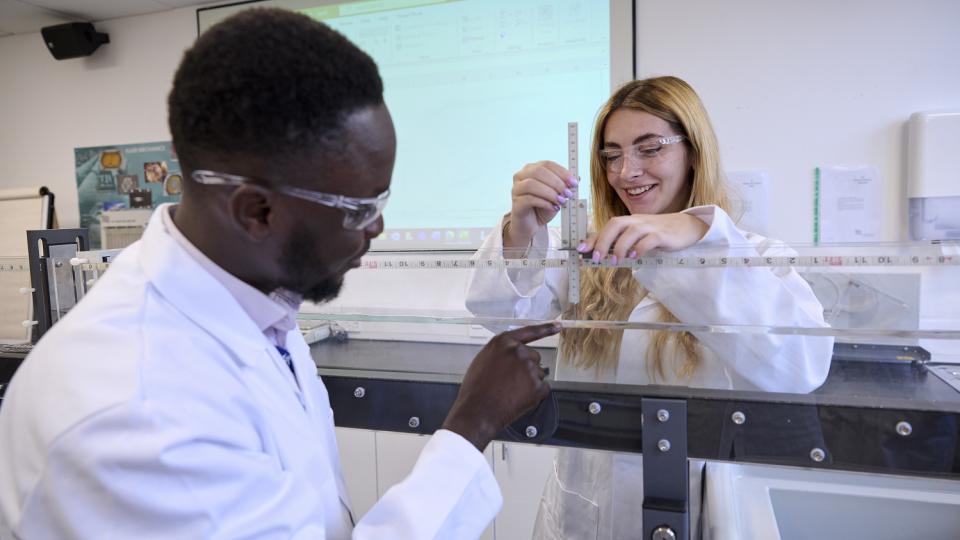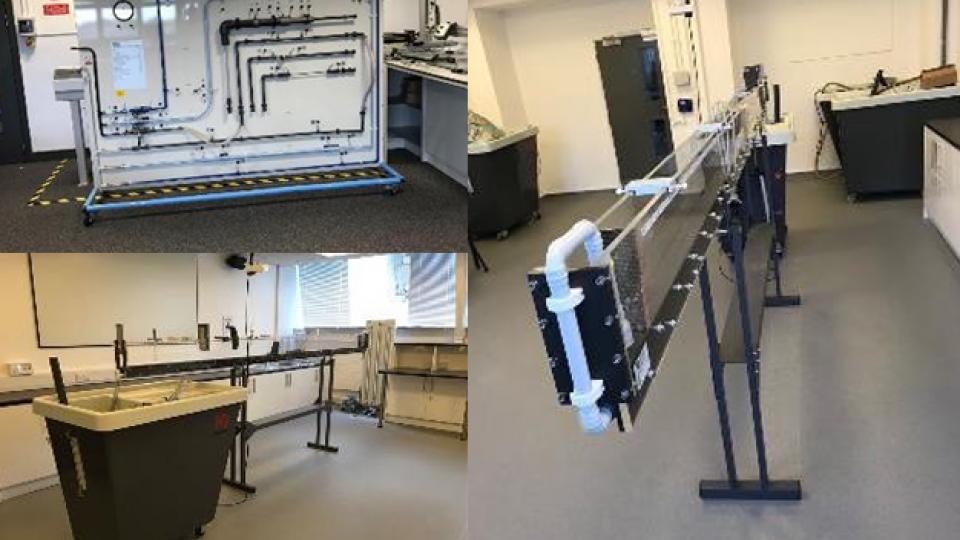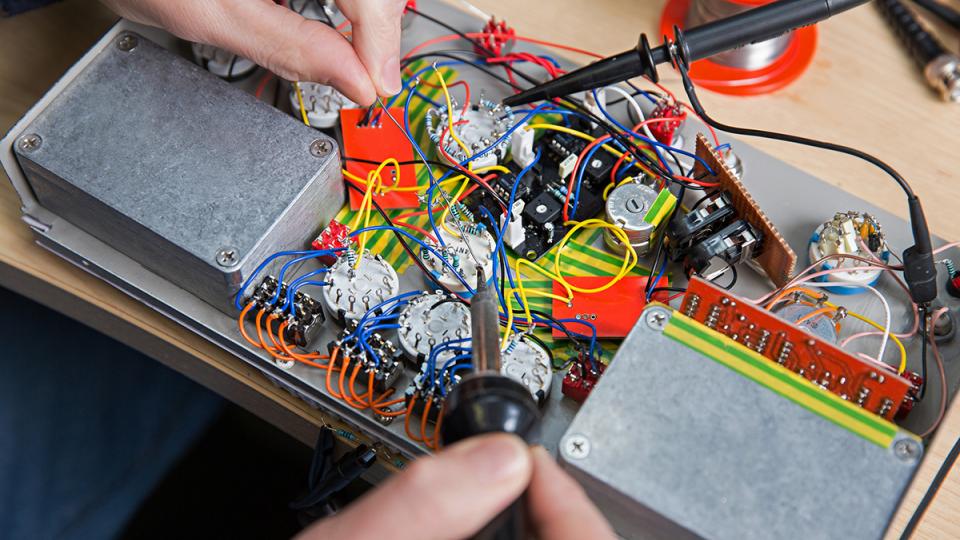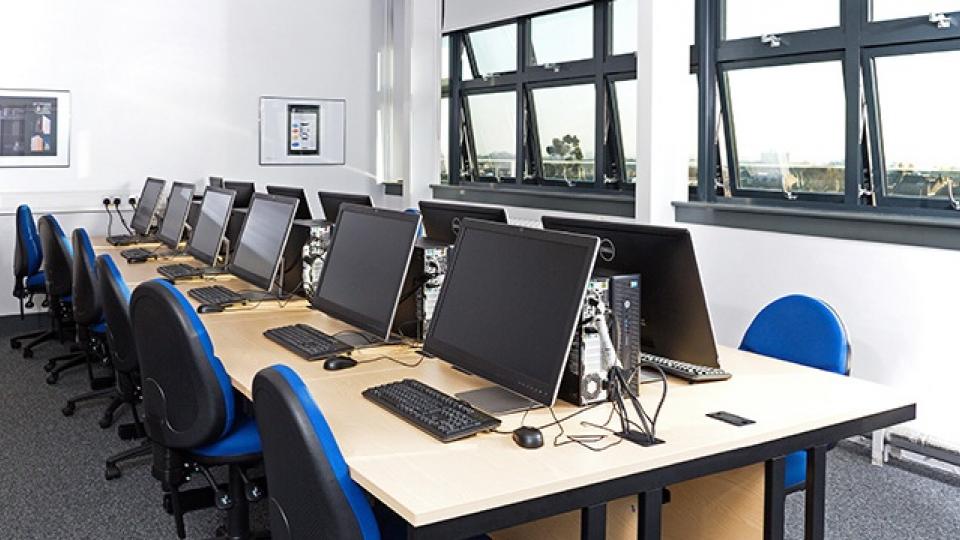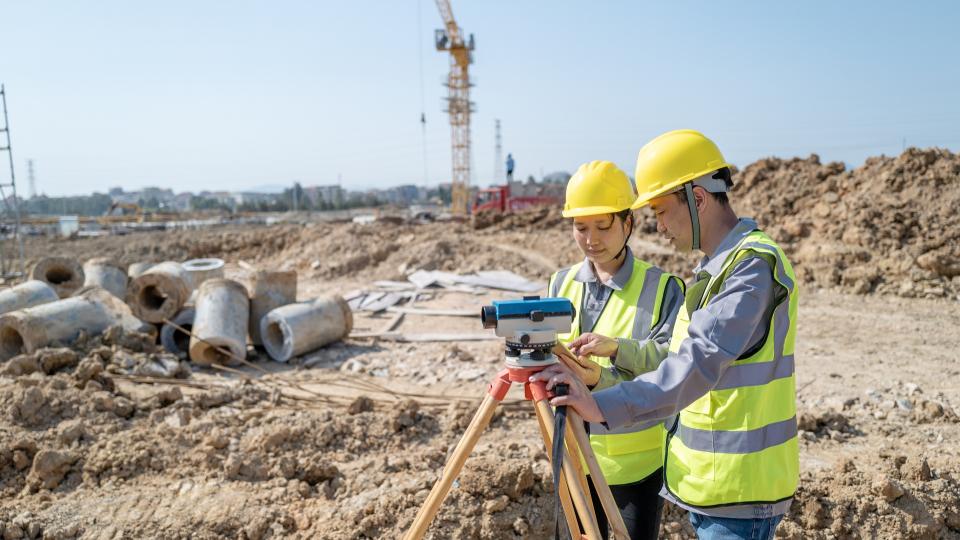
Engineering
Engineering, Mathematics and Statistics
The University of West London's engineering courses offer a diverse range of specialisations, covering fields such as mechanical, electrical, civil, chemical, and computer engineering.
Through a dynamic curriculum, hands-on projects, and cutting-edge research, we foster a stimulating learning environment that nurtures creativity, problem-solving abilities, and a deep understanding of core engineering principles.
Many of our staff are at the international cutting-edge of research, and our close connections with industry help to ensure your engineering course will be fit for today’s competitive job market.
Explore our engineering degrees below, from civil engineering courses to electrical engineering courses, or find out more about our facilities.
Undergraduate engineering courses
-
BSc (Hons) Audio Software Engineering (West London Campus)
West London Campus
-
BEng (Hons) Civil and Environmental Engineering (West London Campus)
West London Campus
-
BEng (Hons) Civil Engineering (West London Campus)
West London Campus
-
MEng (Hons) Civil Engineering (Integrated) (West London Campus)
West London Campus
-
BEng (Hons) Electrical and Electronic Engineering (West London Campus)
West London Campus
-
BSc (Hons) Mathematics and Computing (West London Campus)
West London Campus
-
BSc (Hons) Mathematics and Statistics (West London Campus)
West London Campus
-
BSc (Hons) Sound Engineering (West London Campus)
West London Campus
Postgraduate engineering courses
-
MSc Biomedical Engineering (West London Campus)
West London Campus
-
MSc Civil and Environmental Engineering (West London Campus)
West London Campus
-
MSc Civil Engineering (West London Campus)
West London Campus
-
MSc Digital Audio Engineering (West London Campus)
West London Campus
-
MSc Electronic and Robotic Engineering (West London Campus)
West London Campus
-
MSc Marine Engineering Management (West London Campus)
West London Campus
-
MSc Software Engineering (West London Campus)
West London Campus
-
MSc Structural Engineering (West London Campus)
West London Campus
Accordion
-
Why study engineering at the University of West London?
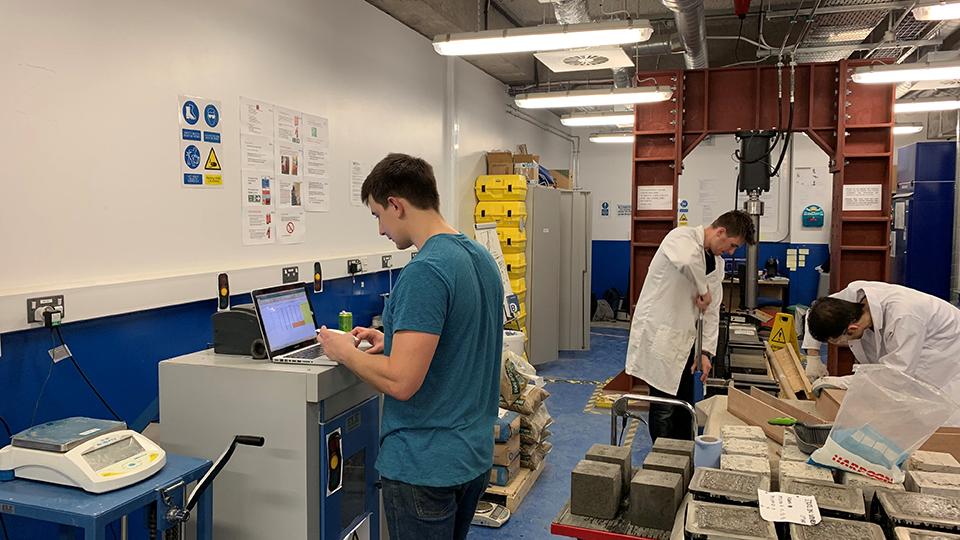
As part of the Career University, we have no higher priority than helping you achieve your professional ambitions. We work closely with industry partners including Transport for London, Atkins and British Aerospace to ensure your course closely reflects the needs of business. Most of our engineering courses are accredited by the relevant professional bodies and some boast multiple accreditations – this means you can be confident your qualification will be respected across industry.
We have seven laboratories and studios, including a concrete testing lab, a soil and geotechnics lab and well-equipped electronics labs. You’ll learn from a supportive team of highly research-active lecturers, with many working at the international cutting edge of their fields.
When you graduate from your engineering degree, you will be entitled to lifelong support from the University of West London Careers Service.
-
What can I do with an engineering degree?

Technical engineering skills are in high demand. Your degree will help you prepare for your chosen career and a range of engineering jobs.
Browse a course that interests you by clicking the relevant link above, and see the ‘Career and study progression’ section to learn more about your options after your course.
The accreditations carried by many of our engineering courses can help you accelerate your career by speeding up the process by which you can apply for Chartered status. You could also progress from your undergraduate course directly onto one of our postgraduate courses.
-
What do I need to study engineering at the University of West London?
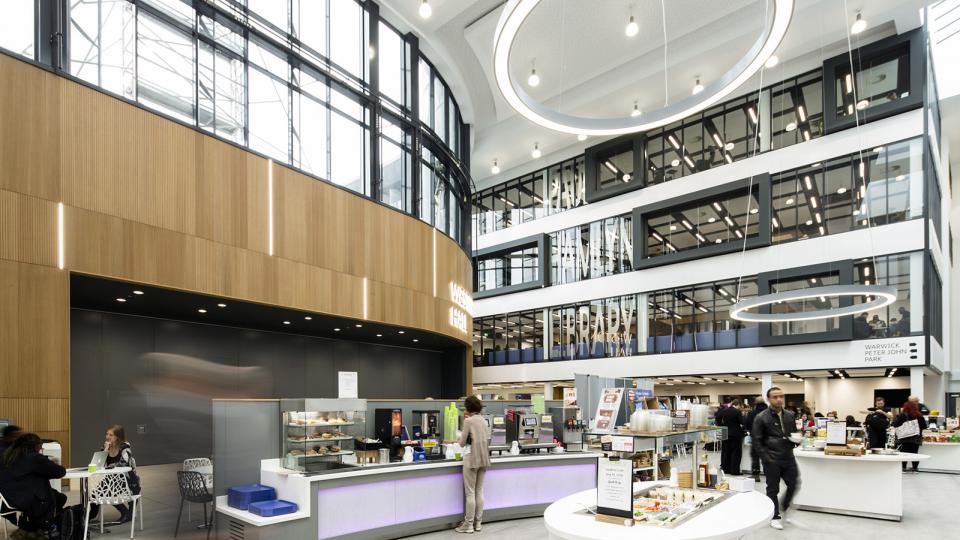
Our entry requirements vary course by course. To find out the qualifications you’ll need for a successful application, browse the relevant course page above. If you do not have quite the right grades or subjects at level 3 to apply for one of our degrees, you might be interested in one of our foundation-year courses.
These four-year degrees include an integrated extra year to help you prepare for undergraduate-level work.
Course videos
-
School of Computing and Engineering
-
BEng (Hons) Civil Engineering
-
BEng (Hons) Civil and Environmental Engineering
-
BEng (Hons) Electrical and Electronic Engineering
School of Computing and Engineering
BEng (Hons) Civil Engineering
BEng (Hons) Civil and Environmental Engineering
BEng (Hons) Electrical and Electronic Engineering
Facilities
Explore the array of facilities available to our engineering students.
The concrete testing lab
This new laboratory is equipped for an extensive range of concrete tests, including testing the compressive strength of concrete as well as bricks and blocks. These experimental tests are conducted in various modules and levels of civil engineering courses.
The soil and geotechnical lab
We maintain a well-equipped, up-to-date geotechnical engineering laboratory for teaching and research support on our civil engineering courses.
The structural laboratory
Our well-equipped structural laboratory is used in a range of civil engineering courses.
The hydraulics lab
The hydraulics laboratory is an active lab for students on Civil Engineering courses. The lab contains hydraulic apparatus used at various levels of BEng (Hons), MSc and PhD Civil Engineering courses.
Two electronics labs
Alongside computer stations with software including MATLAB, LABVIEW and Cadence Orcad, Lab 1's equipment include:
- digital oscilloscopes
- function generators
- power supplies
- digital multimeters
- soldering irons.
Lab 2 offers facilities for projects in specialist areas such as fibre optics and optoelectronics, biomedical engineering, communications technology and audio engineering.
Computing labs
Our computing labs offer numerous computers, most of which are equipped with wide-screen monitors.
The latest computer room offers 27-inch screens. The University Library also provides additional computers and access continuously (including overnight) from Monday morning to Friday evening, with reduced hours on Saturdays and Sundays during term time.
What can I do with an engineering degree?
Once you graduate with an engineering degree you could go on to work in various strands of engineering including:
- mechanical
- manufacturing
- materials
- electrical
- electronics
- petroleum
- chemical (process)
- biomedical
- technical sales
Other fields of employment include supply chain logistics, operation management, procurement and purchasing, patent work, teaching and lecturing, business, management finance, IT, management consulting, technical writing and more.






















